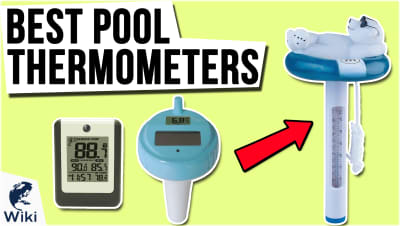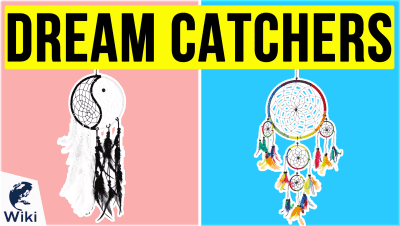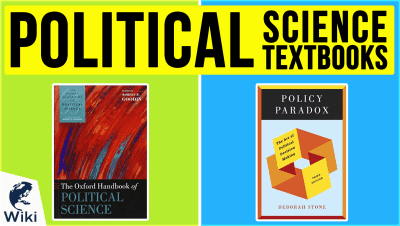5 Organizations Helping People In Need Access Healthcare
Lack of access to safe, effective, and affordable healthcare remains one of the most devastating and unjust social issues plaguing our modern world. Fortunately, organizations such as the ones listed here are working hard to deliver important medical and wellness services to those who need them most, all with the aim of eliminating barriers to long-lasting health and happiness. This video was made with Ezvid Wikimaker.
5 Groups Providing Healthcare to Communities
| Organization | Mission |
|---|---|
| Floating Doctors | Reduce the present and future burden of disease in the developing world, and promote improvements in health care delivery worldwide |
| Global Dental Relief | Bring free dental care to children in need across the world by providing immersive, sustainable, and unforgettable volunteer experiences |
| Resource Center | Empower the lesbian, gay, bisexual, transgender, and queer/questioning communities and all people affected by HIV through improving health and wellness, strengthening families and communities, and providing transformative education and advocacy |
| Health Foundation for Western & Central New York | Improve the health and health care of the people and communities of western and central New York |
| DC Health Link | Implement a health care exchange program in the District of Columbia in accordance with the Affordable Care Act, thereby ensuring access to quality and affordable health care for all DC residents |
Meet the Floating Doctors
Which Places in the US Have the Largest Percentage of LGBT Residents?
According to the Williams Institute at UCLA School of Law
| Rank | State/District | Percentage of Population That is LGBT |
|---|---|---|
| 1. | District of Columbia | 9.8% |
| 2. | Oregon | 5.6% |
| 3. | Nevada | 5.5% |
| 4. | Massachusetts | 5.4% |
| 5. | California | 5.3% |
| 6. | Washington | 5.2% |
| 7. | Vermont | 5.2% |
| 8. | New York | 5.1% |
| 9. | Maine | 4.9% |
| 10. | New Hampshire | 4.7% |
US Mental Health Facts
- 1 in 5 U.S. adults experiences mental illness each year
- 50% of all lifetime mental illness begins by age 14, and 75% by age 24
- Suicide is the 2nd leading cause of death among people aged 10-34
- The average delay between onset of mental illness symptoms and treatment is 11 years
- People with depression have a 40% higher risk of developing cardiovascular and metabolic diseases than the general population
- 19.3% of U.S. adults with mental illness also experienced a substance use disorder in 2018
- The rate of unemployment is higher among U.S. adults who have mental illness (5.8%) compared to those who do not (3.6%)
- 41% of the people with mental disorders receive professional health care or other services
- Mental illness is associated with lower use of medical care, reduced adherence to treatment therapies for chronic diseases and higher risks of adverse health outcomes
- Up to 25% of primary care patients suffer from depression, but primary care doctors identify only 31% of these patients
- 4% of young adults reported forgoing mental health care in the past year, despite self-reported mental health needs
- Major depressive disorder is the leading cause of disability in the U.S. for ages 15-44
- Women are nearly twice as likely to suffer from major depression than men
- Four times as many men than women commit suicide
- Suicidal ideation among adults increased from 3.77% in 2012 to 4.19% in 2017
- The proportion of youth with private insurance that did not cover mental or emotional difficulties went from 4.6% in 2012 to 8.1% in 2017
- 8.4% of children aged 6 to 17 have been diagnosed with anxiety and/or depression
The Problem With American Healthcare
In Depth
In a world with growing wealth disparity, there are large populations without access to healthcare of any kind. To address this problem, a number of individuals and groups around the globe are working in solidarity to get vital services and education to those in need. Here, in no particular order, are some groups striving to provide people with healthier and more stable futures.
First, at #1, is The Floating Doctors. This organization aims to reduce the present and future burden of disease in the developing world, and to promote improvements in healthcare delivery worldwide. Founded by Benjamin LaBrot, the Floating Doctors supplies crucial medical care to impoverished communities around the world via its boats, conducting mobile clinical services for those in need.
LaBrot and his team's first mission was to Haiti after the major earthquake in 2010. Since then, the crew has traveled to Panama, Honduras, and Haiti for additional trips. The Floating Doctors arrive with goals to not only provide free acute and preventative healthcare services, but to also facilitate community development, reduce child and maternal mortality, and improve access to specialist medical care in developing regions.
The Floating Doctors arrive with goals to not only provide free acute and preventative healthcare services, but to also facilitate community development, reduce child and maternal mortality, and improve access to specialist medical care in developing regions.
Next, at #2 we have Global Dental Relief, which was founded in 2001 by former Director of Colorado State Parks Laurie Mathews and dentist Andrew Holecek. The pair recognized the desperate need for dental care in Nepal which, at the time, had 120 dentists for a population approaching 24 million. They knew early oral care and health education would change children's lives.
Volunteers deliver free treatment and preventive care in clinics that serve children in schools and remote villages in Nepal, India, Guatemala, Kenya, and Cambodia. Working in teams of both dental and non-dental professionals, volunteers provide exams, cleanings, fillings, fluoride treatments, and extractions as needed. The organization strives to provide children with the care and education they need to achieve lifelong oral health.
At #3 is Resource Center, which works in HIV/AIDS education and prevention. The Center provides state-of-the-art HIV screening, STI testing and treatment, and wellness clinics to underserved populations. The team seeks to empower lesbian, gay, bisexual, transgender, and queer communities, in addition to all other people affected by the virus, by bolstering health and wellness and providing education and advocacy.
The Center provides state-of-the-art HIV screening, STI testing and treatment, and wellness clinics to underserved populations.
More than 1,200 volunteers and a paid staff of over 70 make Resource Center one of the largest centers of its kind in the United States. The organization provides not only HIV and STI testing and health education, but also offers mental health services, food donations, dental work, and support groups.
For #4 we'll look at the Health Foundation for Western and Central New York, a grant initiative that focuses funding towards programs that improve health outcomes for older adults and children ages 0 to 5 who are impacted by poverty. The Foundation works with community partners to design and support these programs that improve the lives of two of society's most vulnerable and underserved populations.
The Foundation's work with community partners helps older adults stay healthy and independent in their homes and communities, by helping to prevent falls and by supporting caregivers. Additionally, its work for children aims to get families the care, information, and tools they need so their kids are physically, socially, and emotionally healthy when they enter kindergarten.
The Foundation's work with community partners helps older adults stay healthy and independent in their homes and communities, by helping to prevent falls and by supporting caregivers.
Lastly, at #5, is DC Health Link. It works to implement a medical care exchange program in the District of Columbia in accordance with the Affordable Care Act, thereby ensuring access to quality and affordable health services for all DC residents. The organization provides assisters, or navigators, who help connect people with information about available services, as well as assist with applications.
The eleven-person executive board includes seven voting members from the general public and four non-voting members representing important public agencies of the District of Columbia government. Working closely with DC Departments of Health Care Finance, Human Services, and Insurance, Securities and Banking, this program aims to coordinate benefits for residents seeking help with insurance coverage and costs.

















